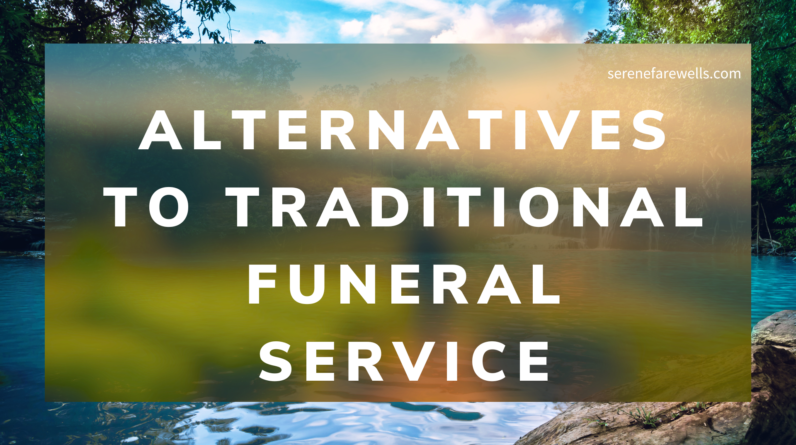
When someone dies, families face both grief and financial pressure. The average funeral costs between $7,000 and $12,000, with traditional burials often reaching $10,000 or more. Cremation typically costs $6,000 to $7,000. For many families, these expenses arrive without warning at an already difficult time.
Several government programs offer financial help with funeral costs, though the amounts vary widely and eligibility requirements differ. Understanding which programs exist and how to access them can provide crucial support when you need it most.
Social Security Death Benefits
The Social Security Administration offers limited funeral assistance through a one-time payment and ongoing support for eligible survivors.
The $255 Death Payment
Social Security provides a single lump sum payment of $255 to help with funeral expenses. This amount has remained unchanged since 1954. If adjusted for inflation, it would equal more than $3,000 today, but the benefit has never increased.
To receive this payment, you must apply within two years of the death. The benefit goes to a surviving spouse who lived with the deceased or was receiving Social Security benefits on their record. If no spouse qualifies, eligible children can receive the payment.
While $255 represents only a small fraction of typical funeral costs, it requires minimal paperwork and arrives relatively quickly compared to other benefits.
Monthly Survivor Benefits
Beyond the death payment, Social Security provides ongoing monthly benefits to eligible family members. Widows, widowers, children, and dependent parents may qualify based on the deceased person’s work record. These benefits continue over time and can provide significant financial support, though they serve broader needs beyond funeral expenses.
To apply for either benefit, call Social Security at 1-800-772-1213 or visit a local office. You cannot apply online. Bring the death certificate, Social Security numbers for all involved, and proof of your relationship to the deceased.
Veterans Burial Benefits
The Department of Veterans Affairs offers substantial support for eligible veterans and their families, making VA benefits among the most comprehensive funeral assistance programs available.
National Cemetery Burial
Veterans with honorable discharges can be buried at no cost in VA national cemeteries where space is available. This includes the burial plot, opening and closing of the grave, perpetual care, and a government-provided burial liner. Many states also operate veterans cemeteries that provide similar benefits.
Spouses and dependent children of eligible veterans can also be buried in national cemeteries at no charge.
Burial Allowances
For families choosing burial in private cemeteries, VA provides cash allowances. The amounts depend on whether the death was service-connected.
For service-connected deaths, VA pays up to $2,000 for burial expenses. For non-service-connected deaths occurring on or after October 1, 2024, VA provides up to $978 for burial costs and another $978 for plot or interment expenses. Veterans who die while hospitalized in VA facilities receive the same $978 amounts.
Surviving spouses listed on the veteran’s VA record receive burial allowances automatically without filing a claim. Others must apply using VA Form 21P-530EZ. Applications can be submitted online through the VA website or by calling 800-827-1000.
In most cases, you have two years from the burial date to file. However, no time limit applies if the death was service-connected or if you’re claiming only plot or transportation allowances.
Memorial Items
VA provides burial flags, headstones, markers, and Presidential Memorial Certificates at no cost. Presidential Memorial Certificates bear the sitting president’s signature and honor the veteran’s service. These items can be requested through funeral directors or directly through VA.
For families purchasing headstones or markers privately, VA offers a reimbursement allowance of up to $231 for veterans who died on or after October 1, 2023.
Medicaid Funeral Assistance
Unlike its extensive healthcare coverage, Medicaid offers very limited funeral assistance. Only four states currently provide burial help through Medicaid-related programs.
Colorado offers up to $1,500 in burial assistance through county human services offices for eligible residents who were receiving Medicaid or similar benefits.
Indiana provides up to $1,200 for funeral services and up to $800 for cemetery costs, paid directly to service providers.
Wisconsin offers funeral assistance of up to $1,500 for qualifying Medicaid recipients.
Wyoming provides burial benefits for eligible residents, though amounts vary.
If you live in any other state, Medicaid will not help with funeral costs. However, many states offer separate burial assistance programs through county social services departments. Contact your local Department of Social Services or Human Services office to ask about available programs.
Setting Aside Funeral Funds Under Medicaid
While Medicaid doesn’t pay for most funerals, it does allow recipients to set aside money for burial without losing eligibility. This protection helps people on Medicaid plan for final expenses while maintaining their healthcare coverage.
SSI Burial Fund Exclusion
Supplemental Security Income recipients can designate up to $1,500 per person for burial expenses without affecting their SSI eligibility. This money must be clearly marked for funeral costs and kept separate from other funds.
Acceptable burial funds include revocable burial contracts, burial trusts, cash accounts earmarked for burial, or installment payments on burial space purchases. Interest earned on these excluded funds also remains exempt if left to accumulate as part of the burial fund.
If you use excluded burial funds for other purposes, SSA may reduce future SSI payments by the amount spent. This penalty only applies if using the funds would push your resources above the normal SSI limit.
To protect your SSI eligibility while saving for funeral costs, inform the Social Security Administration about your designated burial funds. Keep clear documentation showing these accounts are reserved exclusively for funeral expenses.
Workers’ Compensation Death Benefits
When a worker dies from a job-related injury or illness, Workers’ Compensation provides death benefits to surviving family members. These benefits often include coverage for funeral and burial expenses, though amounts and eligibility rules vary by state.
Surviving spouses, dependent children, and sometimes other family members may qualify. The program typically covers reasonable funeral costs up to a set limit, which differs across states.
Contact your state’s Workers’ Compensation office immediately after a work-related death. Time limits for filing claims vary, and delays can jeopardize benefits. Bring the death certificate, proof of the work relationship, and any documentation of the employment incident.
Unemployment-Related Funeral Assistance
A few states provide funeral help when death results from or coincides with unemployment. These programs are rare and eligibility requirements are strict, typically requiring proof that the death was directly connected to job loss or that the deceased was receiving unemployment benefits.
Check with your state unemployment office to learn if such provisions exist in your location. Most states do not offer this benefit.
Crime Victim Compensation
Every state operates a Crime Victim Compensation program to help victims of violent crime and their families. When a homicide occurs, these programs can provide substantial assistance with funeral and burial costs.
Coverage for funeral expenses typically ranges from $5,000 to $12,000, depending on the state. Some states offer more. New York provides up to $12,000, Texas up to $6,500, Pennsylvania and Washington between $5,750 and $6,620, and California up to $7,500.
These programs serve as payers of last resort, meaning you must use insurance and other available resources first. To qualify, the crime must typically be reported to law enforcement, and families must cooperate with any investigation or prosecution.
Application deadlines vary but generally range from two to three years after the crime. Some states extend this period under certain circumstances.
To apply, contact your state’s Crime Victim Compensation office or victim services program. Many counties have victim advocates who can help with applications. You’ll need the death certificate, police reports, itemized funeral bills, and information about any insurance or other payments received.
State and Local Burial Assistance
Beyond federal programs, many states and counties operate indigent burial or emergency assistance programs. These help families who cannot afford funeral costs and have exhausted other options.
Eligibility usually requires proof of limited income and assets. Some programs serve only residents who were receiving government assistance at the time of death. Others help any family meeting income thresholds, regardless of the deceased person’s benefit status.
Benefits vary widely. Some programs cover only direct burial or cremation with no service. Others provide several hundred to a few thousand dollars toward funeral expenses. Many programs pay providers directly rather than reimbursing families.
To find programs in your area, contact your county Department of Social Services, Department of Human Services, or similar agency. City and county websites often list available assistance programs. Funeral directors may also know about local programs, though they’re not always advertised.
Native American Burial Programs
Tribal governments and Native American organizations offer burial assistance programs designed for tribal members. Benefits, eligibility requirements, and application processes vary significantly among tribes.
Some tribes provide burial plots, funeral services, or cash assistance for funeral expenses. Others partner with funeral homes to arrange reduced-cost services for members.
Contact your tribal government office or the Bureau of Indian Affairs to learn about programs serving your tribe. Tribal enrollment documentation is typically required.
Non-Governmental Assistance
While government programs provide the most reliable assistance, several types of non-governmental organizations may help with funeral costs.
Consumer Advocacy Organizations
The Funeral Consumers Alliance is a nonprofit educational organization that helps consumers understand funeral options and find affordable services. FCA does not provide financial assistance or grants, but offers valuable guidance on reducing costs and connecting with affordable providers. Local FCA affiliates often maintain price surveys comparing funeral homes in their areas.
Charitable Organizations
Some charitable groups provide limited funeral assistance on a case-by-case basis. Catholic Charities, for example, operates programs in many communities that may help with funeral costs for those in need. The Hebrew Free Burial Society assists indigent Jewish families.
These organizations typically have limited funds and strict eligibility requirements. Assistance is not guaranteed and often depends on available resources at the time of need.
Faith Communities
Churches, synagogues, mosques, temples, and other religious organizations sometimes maintain benevolence funds to help members with funeral costs. Some religious cemeteries provide plots to members at reduced cost or no charge.
Contact your faith community’s administrative office or spiritual leader to ask about available assistance.
Fraternal and Professional Organizations
Labor unions, professional associations, and fraternal organizations sometimes offer death benefits or funeral assistance to members in good standing. Some employer benefit packages include modest survivor benefits that can help with funeral costs.
Check membership materials or contact the organization directly to learn about any available benefits.
How to Access Multiple Benefits
Many families qualify for benefits from several programs simultaneously. You can combine the Social Security death payment with VA benefits, state assistance, and crime victim compensation if you meet each program’s requirements.
Start by identifying all programs for which you might qualify based on the deceased person’s status. Veterans benefits, for example, can be combined with Social Security payments. Crime victims’ families can receive compensation in addition to other benefits.
Apply to each program separately, as they operate independently. Be prepared to provide documentation multiple times, as programs rarely share information.
When applying for needs-based programs like state burial assistance, disclose all other benefits received or pending. These programs typically pay only after other sources are exhausted, and failing to report other assistance can delay or disqualify your claim.
Documentation You’ll Need
Most programs require similar documentation. Gather these items early to speed the application process:
The death certificate showing cause of death. Most programs require an official certified copy rather than a photocopy.
Social Security numbers for the deceased and all applicants.
Proof of relationship to the deceased, such as marriage certificates or birth certificates.
Military discharge papers (DD-214) for veterans benefits. If you don’t have these, you can request them through the National Archives.
Itemized bills and receipts from funeral homes, cemeteries, and other service providers. Keep detailed records of all expenses.
Documentation of any insurance policies, prepaid funeral plans, or other resources that might cover costs.
Proof of income and assets for needs-based programs.
Police reports for crime victim compensation claims.
Make copies of everything before submitting applications, as many programs keep submitted documents.
When Benefits Fall Short
Even with government assistance, many families face gaps between available benefits and actual funeral costs. The $255 Social Security payment barely makes a dent in expenses. State burial assistance, where available, typically covers only basic services.
If you’re planning ahead, consider these options to bridge the gap. Final expense insurance policies offer coverage specifically for funeral costs, usually ranging from $5,000 to $25,000. These policies often require no medical exam and approve applicants with health conditions that would disqualify them from traditional life insurance.
Prepaid funeral plans lock in current prices and prevent cost increases. However, research these carefully, as some plans have restrictions or may not be transferable if you move.
When facing immediate costs with insufficient resources, discuss payment plans with funeral homes. Some offer installment payments or reduced-cost packages. Choosing direct burial or direct cremation without services significantly reduces costs, often to $1,000 to $3,000.
Crowdfunding through platforms like GoFundMe has become common for funeral expenses. Many families successfully raise funds this way, especially when sharing their story through social media networks.






